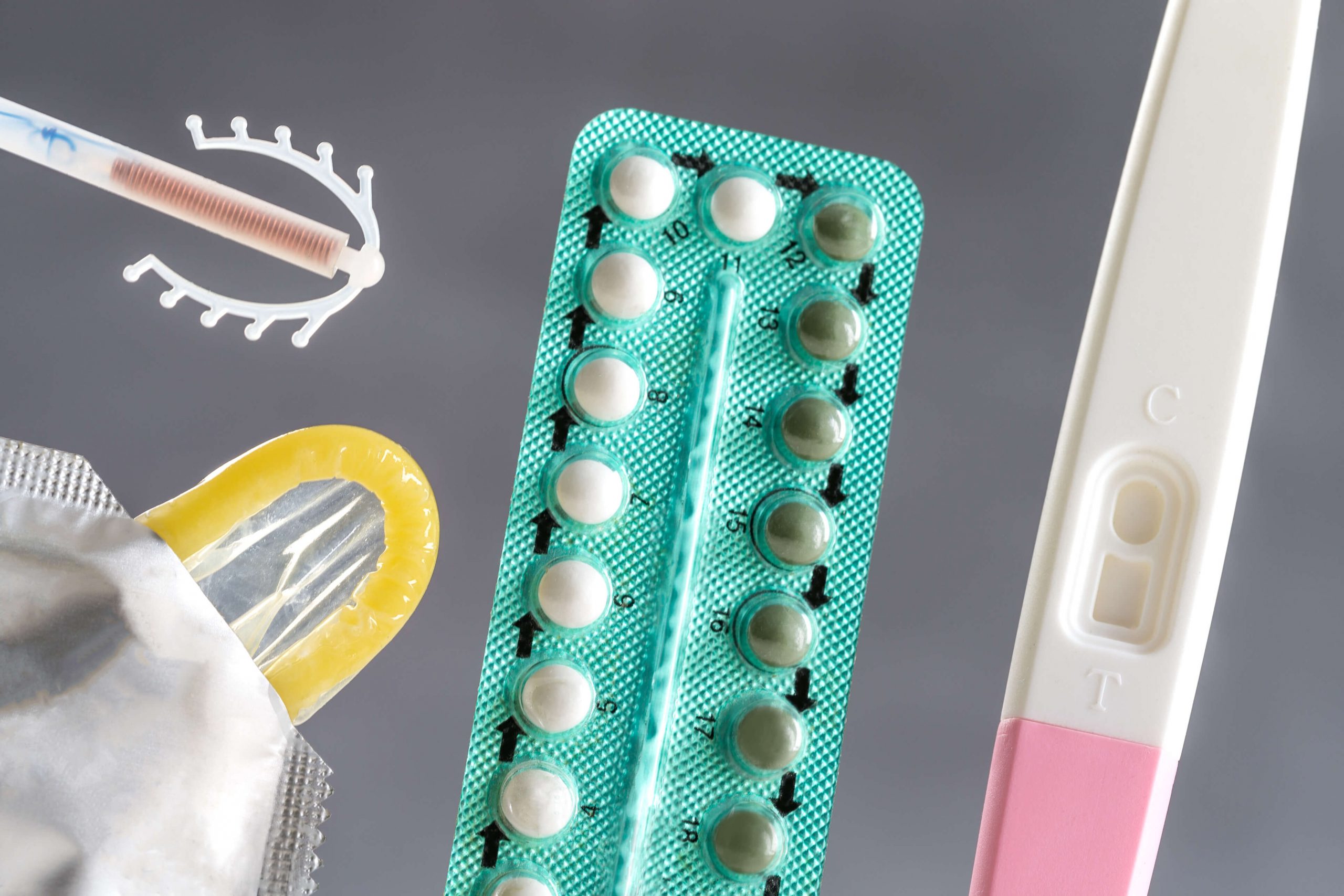Women's Health
Ovarian Cysts: Symptoms, Causes & Treatments In Singapore

Ovarian cysts are fluid-filled sacs that develop on the surface of or inside your ovaries. The majority of ovarian cysts are benign, asymptomatic and resolve on their own without medical treatment, while some others may present uncomfortable symptoms that affect your quality of life. Rarely, some ovarian cysts may become malignant (cancerous).
Ovarian cysts are common in women who experience regular periods since small cysts can develop naturally as part of the menstrual cycle. Those that develop as a result of regular ovulation are referred to as functional ovarian cysts and cause no symptoms.
If you experience symptoms such as bloating, vaginal bleeding or pelvic pain, please promptly seek help from an experienced gynaecologist in Singapore.
Types Of Ovarian Cysts
Follicle Cysts
During your normal menstrual cycle, an ovum grows in the follicle. An ovum is the female reproductive cell that is often referred to as an egg, while follicles are fluid-filled sacs that each contains an egg. Usually, one of the many follicles matures and breaks open to release an egg ready for fertilisation.
However, if your follicle does not break open successfully, the fluid inside it can form a cyst on your ovary referred to as the follicle cyst.
Corpus Luteum Cysts
Once your follicle breaks and releases the mature egg, the empty follicle sac that remains shrinks into a mass of cells referred to as the corpus luteum.
The primary function of corpus luteum is to release hormones that prepare your reproductive system for early stages of pregnancy if the egg becomes fertilised and implanted in your uterus.
However, abnormal changes can cause the empty follicle to seal off and accumulate fluid inside the sac, leading to corpus luteum cysts. In most cases, corpus luteum cysts will disappear after a few days or weeks without treatment.
Endometrioma Cysts
These cysts are also known as chocolate cysts and develop if you have endometriosis. Endometriosis occurs when cells from your womb lining develop outside the womb. The deposits of such cells on your ovary results in the formation of endometriotic cysts.
Cystadenomas
Cystadenomas are a type of benign tumour that develops from your ovarian tissue. It develops on the outer surface of your ovary and may contain fluid. Cystadenomas cysts often vary greatly in size, and are bilateral and papillary.
Dermoids
This type of cysts contains different kinds of tissues that make up your body, such as hair, fat, and skin cells. Dermoids may be present from birth but tend to grow during your reproductive years. In rare cases, they may become cancerous.
Causes & Risk Factors
Most ovarian cysts develop naturally as a result of hormonal imbalances. They may also develop if you have had a severe pelvic infection that has reached your ovaries or during pregnancy.
If you suspect that you have developed ovarian cysts, make sure that your condition is diagnosed and treated by a medical specialist experienced in ovarian conditions.
Risk factors for ovarian cysts include:
- Obesity
- Older age
- History of breast cancer
- Family history of ovarian cancer
- Hormone replacement therapy
- Smoking
Symptoms
Most ovarian cysts are benign, which means that they do not present any symptoms and are generally harmless. However, some cysts undergo rapid growth and bleed or rupture, causing various symptoms such as:
- Pelvic pain — constant, dull aching
- Bloating or swelling in the abdomen
- Unusual vaginal bleeding
- Pain during sexual intercourse
- Pain during bowel movements
- Pain shortly before or during menstruation
- Frequent urination or difficulty emptying your bladder completely
- Sudden and severe pelvic pain, often with nausea and vomiting (may be a sign of torsion or twisting of the ovary reducing its blood supply, or rupture of a cyst with internal bleeding)
Latest Articles
How Are Abdominal Hernias Treated?
What to Expect from Colorectal Surgery
How to Treat Breast Inflammatory Conditions
Gynaecomastia: Understanding Male Breast Cancer
Diagnosis
An experienced Gynaecologist can easily detect ovarian cysts during a routine pelvic examination. If your Gynaecologist notices a swelling on either of your ovaries, he/she will recommend an ultrasound test to confirm the presence of an ovarian cyst.
An ultrasound test uses high-frequency sound waves to create an image of your ovaries. It helps to determine the size, location, shape, and even composition of the cyst.
Since a majority of ovarian cysts resolve on their own after a few weeks or months without medical intervention, your specialist may not recommend a treatment plan immediately. Instead, he/she will recommend another ultrasound after a few months to monitor your condition.
If there are no changes or if the cyst has become larger, your specialist will order further tests to determine other potential causes of your condition. These tests include:
- Pregnancy test to rule out pregnancy
- Hormone level tests to determine if there are hormone-related problems such as too much progesterone or estrogen.
- Blood tests to screen for ovarian cancer. The blood test measures the presence of cancer-antigen 125 (CA-125) in your blood sample. Typically, the amount of 125 (CA-125) is heightened with ovarian cancer. This test also establishes if you are a BRCA1/2 carrier. Confirmed BRCA/2 mutation carriers are at an increased risk for ovarian cancer.
Treatment For Ovarian Cysts
Your doctor may recommend any of the following treatment plans, depending on your symptoms, size, and appearance of your cyst.
Conservative Therapy
The conservative cyst treatment method involves keeping a close eye on your condition to see how it progresses without medical intervention. Conservative therapy may include regular ultrasounds to see if there are any changes to the size and appearance of your ovarian cysts.
Medication
Your doctor may also recommend pain-relieving medicine, birth control pills or anti-inflammatory medication to help manage your condition. Although birth control pills may not reduce the size of your cyst, they may keep your ovarian cysts from recurring.
Surgical Treatment
Surgery may be recommended if your cyst causes unbearable symptoms, is large, or if your doctor suspects ovarian cancer.
- Laparoscopic surgery, which is also known as keyhole surgery, will be recommended if the risk of malignancy is relatively low. This type of surgery is associated with less pain and faster recovery. During laparoscopy, your surgeon will make an incision near your navel and insert a tiny instrument into the abdomen to remove the cyst.
- Laparotomy or open surgery will be recommended if the cyst is large and has suspicious features or if you have had previous surgery. During Laparotomy, your doctor will remove your cyst through a relatively large incision made in your abdomen. He/she will also conduct an immediate biopsy to determine if your ovarian cyst is cancerous.
Common FAQs About Ovarian Cysts
Who gets ovarian cysts?
Cysts commonly occur in women who get regular periods. Postmenopausal women who develop cysts are at a higher risk of developing ovarian cancer. However, ovarian cysts are rare after menopause.
Can ovarian cysts be an emergency?
Yes. If you have been diagnosed with ovarian cysts, then start to experience sudden pain accompanied with fever and vomiting, dizziness, weakness, rapid breathing, and sudden abdominal pain, it could be an indication that your cyst has ruptured. Sometimes, large, ruptured ovarian cysts may lead to heavy bleeding and you will need to see a doctor urgently.
Can ovarian cysts lead to cancer?
Yes. Some cysts can become malignant (cancerous), but most ovarian cysts are noncancerous.
Can you prevent ovarian cysts?
No, you cannot prevent the development of ovarian cysts as long as you are ovulating.
Will your ovarian cysts require surgery?
Not in all cases. Typically, your cysts will require surgery if you are past menopause or if it gets larger, causes pain, looks unusual on ultrasound, or does not resolve even after several menstrual cycles.
WHO WE ARE
About SOG Health Pte. Ltd.
Established in 2011, SOG Health Pte. Ltd. (“SOG”) is a leading healthcare service provider dedicated to delivering holistic health and wellness services to the modern family.
With a long and established track record in Singapore providing Obstetrics and Gynaecology (“O&G”) services such as pre-pregnancy counselling, delivery, pregnancy and post-delivery care, the Group has since further expanded its spectrum of healthcare services to include Paediatrics, Dermatology, and Cancer-related General Surgery (Colorectal, Breast & Thyroid).
The Group’s clinics, under its four operating segments of O&G, Paediatrics, Oncology and Dermatology, are strategically located throughout Singapore to provide easy access to its patients.
- Obstetrics
- Gynaecology
- GynaeOncology
- Breast, Thyroid & General Surgery
- Colorectal, Endoscopy & General Surgery
- Dermatology
- Paediatrics
Consult With A Specialist From SOG
Visit one of our specialists today to learn more about your health!
Recommended Gynaecologists
Book An Appointment
Fill up this form and our clinic will get back to you shortly.
For general enquiries, please click here.








